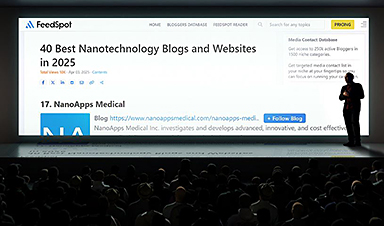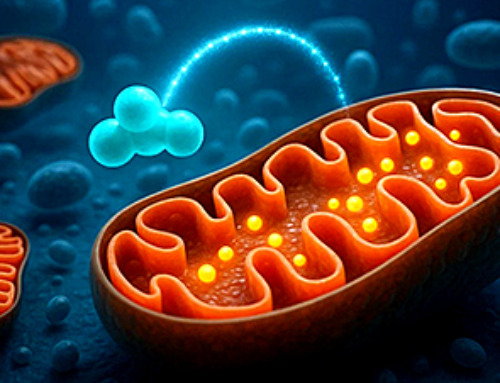To examine the global state of AI ethics, a team of researchers from Brazil performed a systematic review and meta-analysis of global guidelines for AI use. Publishing October 13 in in the journal Patterns, the researchers found that, while most of the guidelines valued privacy, transparency, and accountability, very few valued truthfulness, intellectual property, or children’s rights. Additionally, most of the guidelines described ethical principles and values without proposing practical methods for implementing them and without pushing for legally binding regulation.
“Previous work predominantly centered around North American and European documents, which prompted us to actively seek and include perspectives from regions such as Asia, Latin America, Africa, and beyond,” says lead author Nicholas Kluge Corrêa of the Pontifical Catholic University of Rio Grande do Sul and the University of Bonn.
To determine whether a global consensus exists regarding the ethical development and use of AI, and to help guide such a consensus, the researchers conducted a systematic review of policy and ethical guidelines published between 2014 and 2022.
From this, they identified 200 documents related to AI ethics and governance from 37 countries and six continents and written or translated into five different languages (English, Portuguese, French, German, and Spanish). These documents included recommendations, practical guides, policy frameworks, legal landmarks, and codes of conduct.
Then, the team conducted a meta-analysis of these documents to identify the most common ethical principles, examine their global distribution, and assess biases in terms of the type of organizations or people producing these documents.
The researchers found that the most common principles were transparency, security, justice, privacy, and accountability, which appeared in 82.5%, 78%, 75.5%, 68.5%, and 67% of the documents, respectively.
The least common principles were labor rights, truthfulness, intellectual property, and children/adolescent rights, which appeared in 19.5%, 8.5%, 7%, and 6% of the documents, and the authors emphasize that these principles deserve more attention. For example, truthfulness—the idea that AI should provide truthful information—is becoming increasingly relevant with the release of generative AI technologies like ChatGPT. And since AI has the potential to displace workers and change the way we work, practical measures are to avoid mass unemployment or monopolies.
The researchers also identified several biases in terms of where these guidelines were produced and who produced them. The researchers noted a gender disparity in terms of authorship. Though 66% of samples had no authorship information, the authors of the remaining documents more often had male names (549 = 66% male, 281 = 34% female).
Geographically, most of the guidelines came from countries in Western Europe (31.5%), North America (34.5%), and Asia (11.5%), while less than 4.5% of the documents originated in South America, Africa, and Oceania combined. Some of these imbalances in distribution may be due to language and public access limitations, but the team says that these results suggest that many parts of the Global South are underrepresented in the global discourse on AI ethics.
In some cases, this includes countries that are heavily involved in AI research and development, such as China, whose output of AI-related research increased by over 120% between 2016 and 2019.
“Our research demonstrates and reinforces our call for the Global South to wake up and a plea for the Global North to be ready to listen and welcome us,” says co-author Camila Galvão of the Pontifical Catholic University of Rio Grande do Sul. “We must not forget that we live in a plural, unequal, and diverse world. We must remember the voices that, until now, haven’t had the opportunity to claim their preferences, explain their contexts, and perhaps tell us something that we still don’t know.”
As well as incorporating more voices, the researchers say that future efforts should focus on how to practically implement principles of AI ethics. “The next step is to build a bridge between abstract principles of ethics and the practical development of AI systems and applications,” says Santos.
More information: Nicholas Kluge Corrêa et al, Worldwide AI ethics: a review of 200 guidelines and recommendations for ai governance, Patterns (2023). DOI: 10.1016/j.patter.2023.100857. www.cell.com/patterns/fulltext … 2666-3899(23)00241-6
News
This Tiny Cellular Gate Could Be the Key to Curing Cancer – And Regrowing Hair
After more than five decades of mystery, scientists have finally unveiled the detailed structure and function of a long-theorized molecular machine in our mitochondria — the mitochondrial pyruvate carrier. This microscopic gatekeeper controls how [...]
Unlocking Vision’s Secrets: Researchers Reveal 3D Structure of Key Eye Protein
Researchers have uncovered the 3D structure of RBP3, a key protein in vision, revealing how it transports retinoids and fatty acids and how its dysfunction may lead to retinal diseases. Proteins play a critical [...]
5 Key Facts About Nanoplastics and How They Affect the Human Body
Nanoplastics are typically defined as plastic particles smaller than 1000 nanometers. These particles are increasingly being detected in human tissues: they can bypass biological barriers, accumulate in organs, and may influence health in ways [...]
Measles Is Back: Doctors Warn of Dangerous Surge Across the U.S.
Parents are encouraged to contact their pediatrician if their child has been exposed to measles or is showing symptoms. Pediatric infectious disease experts are emphasizing the critical importance of measles vaccination, as the highly [...]
AI at the Speed of Light: How Silicon Photonics Are Reinventing Hardware
A cutting-edge AI acceleration platform powered by light rather than electricity could revolutionize how AI is trained and deployed. Using photonic integrated circuits made from advanced III-V semiconductors, researchers have developed a system that vastly [...]
A Grain of Brain, 523 Million Synapses, Most Complicated Neuroscience Experiment Ever Attempted
A team of over 150 scientists has achieved what once seemed impossible: a complete wiring and activity map of a tiny section of a mammalian brain. This feat, part of the MICrONS Project, rivals [...]
The Secret “Radar” Bacteria Use To Outsmart Their Enemies
A chemical radar allows bacteria to sense and eliminate predators. Investigating how microorganisms communicate deepens our understanding of the complex ecological interactions that shape our environment is an area of key focus for the [...]
Psychologists explore ethical issues associated with human-AI relationships
It's becoming increasingly commonplace for people to develop intimate, long-term relationships with artificial intelligence (AI) technologies. At their extreme, people have "married" their AI companions in non-legally binding ceremonies, and at least two people [...]
When You Lose Weight, Where Does It Actually Go?
Most health professionals lack a clear understanding of how body fat is lost, often subscribing to misconceptions like fat converting to energy or muscle. The truth is, fat is actually broken down into carbon [...]
How Everyday Plastics Quietly Turn Into DNA-Damaging Nanoparticles
The same unique structure that makes plastic so versatile also makes it susceptible to breaking down into harmful micro- and nanoscale particles. The world is saturated with trillions of microscopic and nanoscopic plastic particles, some smaller [...]
AI Outperforms Physicians in Real-World Urgent Care Decisions, Study Finds
The study, conducted at the virtual urgent care clinic Cedars-Sinai Connect in LA, compared recommendations given in about 500 visits of adult patients with relatively common symptoms – respiratory, urinary, eye, vaginal and dental. [...]
Challenging the Big Bang: A Multi-Singularity Origin for the Universe
In a study published in the journal Classical and Quantum Gravity, Dr. Richard Lieu, a physics professor at The University of Alabama in Huntsville (UAH), which is a part of The University of Alabama System, suggests that [...]
New drug restores vision by regenerating retinal nerves
Vision is one of the most crucial human senses, yet over 300 million people worldwide are at risk of vision loss due to various retinal diseases. While recent advancements in retinal disease treatments have [...]
Shingles vaccine cuts dementia risk by 20%, new study shows
A shingles shot may do more than prevent rash — it could help shield the aging brain from dementia, according to a landmark study using real-world data from the UK. A routine vaccine could [...]
AI Predicts Sudden Cardiac Arrest Days Before It Strikes
AI can now predict deadly heart arrhythmias up to two weeks in advance, potentially transforming cardiac care. Artificial intelligence could play a key role in preventing many cases of sudden cardiac death, according to [...]
NanoApps Medical is a Top 20 Feedspot Nanotech Blog
There is an ocean of Nanotechnology news published every day. Feedspot saves us a lot of time and we recommend it. We have been using it since 2018. Feedspot is a freemium online RSS [...]





















